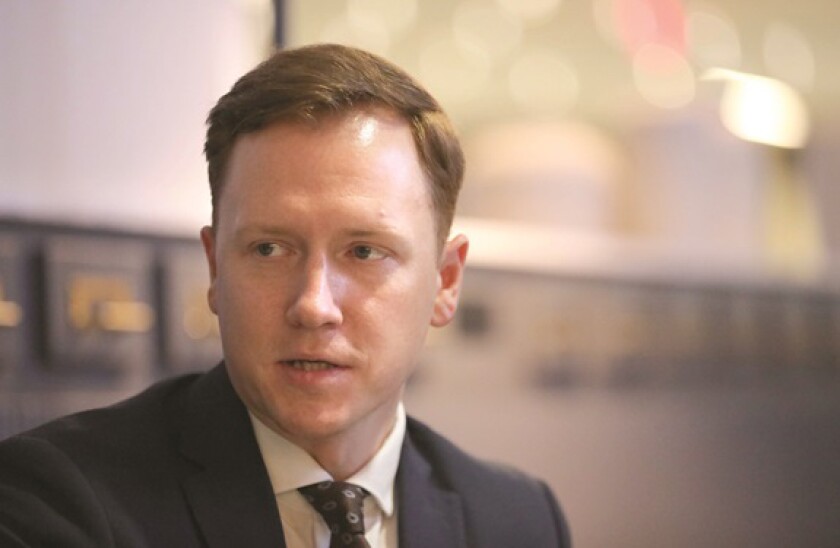Lithuania’s vice-minister of finance Mindaugas Liutvinskas has said more must be done to help Ukraine, including further-reaching sanctions. “If the Ukrainians are not tired of fighting, we have no reason to be tired of helping them,” he said.
Liutvinskas is hopeful that in the 15th package of European Union sanctions on Russia, now being discussed, even harder hitting measures will be put in place. “We feel that more can be done in sanctioning the energy sector,” he said.
“This includes the LNG trade and more to make the oil price cap more effective. Oil remains the key revenue source for the Russian regime to fund its ongoing war against Ukraine. We also need to find ways to further restrict and sanction the Russian financial sector that facilitates the payments between what’s remaining of the trade between Europe and Russia.”
Liutvinskas is also in favour of imposing a ban on all the dual use goods trade. “We have selected segments of dual use goods which have been documented as potentially usable in the military effort,” said Liutvinskas. “But we feel that we should take a step further and discuss a full ban of dual use goods to reduce any risks in this regard.”
He said Lithuania had itself already strengthened the enforcement of sanctions, beyond what had been agreed at the European level. It initiated an agreement between the customs offices of countries bordering Russia and Belarus — the three Baltic states, Finland and Poland — to make customs checks even more detailed and ensure goods crossing the border actually went to the countries declared.
More defence spending
After the success of those measures, Liutvinskas is also urging they be adopted at EU level. But some fear that in the future there may be less support for Ukraine, not more, in particular if Donald Trump becomes the next US president. That may mean a more threatened Lithuania.
Liutvinskas would not comment on this but said Lithuania was planning for consistently higher defence spending. Liutvinskas said that while the US was expected to remain a key partner in security and economically, the country was “doing its own homework and treating our security seriously”.
“We are investing as much as we can, and we are substantially above the Nato minimum threshold of 2%,” he said. “Increasing defence spending is a top priority for this government. Over the course of the last four years — this government’s term — we have increased the defence spending from 2% [of] GDP to 3.2%. There is broad political agreement on the need to increase our capacity to defend in case in case of need.”
He said he expected the figure to stay above 3% in the medium term but, as it was not one-off spending, it would need to be covered by additional revenues, so as not to harm fiscal sustainability. “The question is, will that be enough going forward?” he said. “We’ll see, but the needs are quite substantial, and we have to treat our security very seriously.”
